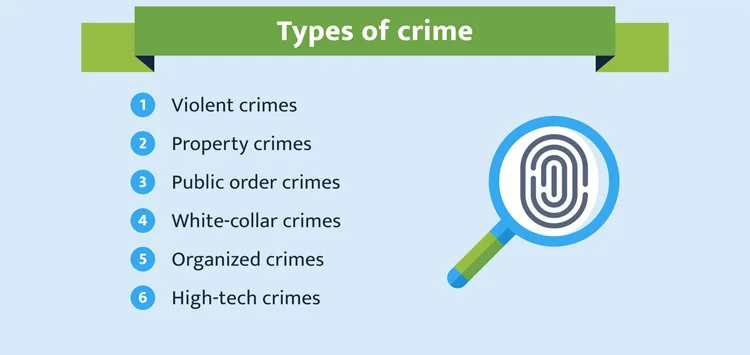Criminal Justice Research Topics
Criminal justice research encompasses a broad spectrum of topics within the fields of criminology and criminal justice, delving into the intricacies of law enforcement, legal processes, and societal responses to crime. One prominent area of study revolves around the effectiveness of rehabilitation programs for offenders, exploring interventions that can break the cycle of criminal behavior. Researchers may investigate the impact of various sentencing strategies, from alternative sentencing to the effectiveness of incarceration in deterring future criminal activity.
The intersection of technology and criminal justice is another compelling research avenue, focusing on topics such as cybercrime, digital forensics, and the ethical implications of surveillance methods. Additionally, the study of criminal profiling and behavioral analysis contributes to understanding the psychological factors influencing criminal behavior.
Juvenile justice is a vital subfield, addressing topics like the effectiveness of juvenile rehabilitation programs and the long-term outcomes for young offenders. Examining the relationship between mental health and criminal behavior is also pivotal, shedding light on the challenges faced by individuals with mental illnesses within the criminal justice system.
Overall, the realm of criminal justice research remains dynamic, with ongoing investigations shaping policies, interventions, and societal approaches to crime prevention and justice.
Which Areas Of Criminal Justice Study Are Now Popular?
In the realm of criminal justice study, certain areas have garnered increased attention and popularity, reflecting the dynamic nature of the field. One notable focal point is criminal law, a cornerstone of the discipline that explores the legal aspects of criminal offenses. As students delve into the intricacies of criminal law, they often seek specialized assistance, leading to a surge in the demand for services like "Criminal Law Assignment Help."
Another burgeoning area is cybercrime and digital forensics, reflecting the evolving landscape of criminal activities in the digital age. The rise of technology has necessitated a deeper understanding of cyber threats, prompting students to explore cybercrime investigation techniques and prevention strategies.
Furthermore, criminal justice reform and social justice issues have become prominent topics of study. Students are increasingly drawn to courses that delve into the systemic challenges within the criminal justice system, aiming to contribute to the pursuit of fairness, equity, and improved outcomes for all.
In conclusion, the popularity of criminal justice studies is witnessing a shift towards specialized areas such as criminal law, cybercrime, and social justice, reflecting the contemporary challenges and demands of the evolving legal landscape. The demand for services like "Criminal Law Assignment Help" underscores the commitment of students to excel in these dynamically evolving fields.
What Effects Does Ttechnology Have On The Findings Of Criminal Justice Research?
Technology has revolutionized the landscape of criminal justice research, significantly impacting the fields of criminology and criminal law. The integration of advanced tools and methodologies has brought about both positive and challenging effects on the way findings are obtained and analyzed in these disciplines.
In criminology, technology has enhanced the collection and processing of data, enabling researchers to delve deeper into patterns of criminal behavior. The use of big data analytics, artificial intelligence, and machine learning has allowed for the identification of complex correlations and predictive models, offering valuable insights into criminal trends. Moreover, advancements in forensic technology, such as DNA analysis and digital forensics, have greatly improved the accuracy and reliability of evidence, strengthening the foundation of criminal investigations.
However, the proliferation of technology in criminal justice research also presents challenges. Issues related to privacy, data security, and the potential for bias in algorithms demand careful consideration. Moreover, the rapid pace of technological advancements requires continuous adaptation in research methodologies and ethical frameworks.
Law and criminality assignment help services become crucial in navigating these complexities, providing students with the knowledge and skills to comprehend the intricate interplay between technology and criminal justice research. As the symbiotic relationship between technology and these fields evolves, the importance of staying informed and educated on these changes remains paramount for future professionals in criminology and criminal law.
What Influence Do Racial And Ethnic Differences Have On The Priorities Of Criminal Justice Research?
Racial and ethnic differences wield a profound impact on the priorities of criminal justice research, shaping the discourse and focus of academic investigations. In the realm of criminal justice, the study of racial and ethnic disparities is a critical avenue for understanding the complex interplay between societal structures and law enforcement practices. These differences, often manifesting as disparities in arrest rates, sentencing, and overall treatment within the criminal justice system, prompt researchers to delve into the root causes and consequences of such imbalances.
BookMyEssay, a prominent platform offering Assignment Help in UK, recognizes the significance of exploring the multifaceted dimensions of racial and ethnic influences on criminal justice research. The academic support provided by services like BookMyEssay assists students in comprehending and analyzing the intricate issues surrounding this field.
Researchers and students alike grapple with questions related to systemic bias, discrimination, and the broader societal implications of these disparities. As the landscape of criminal justice continues to evolve, the demand for comprehensive research addressing racial and ethnic nuances remains a priority. BookMyEssay commitment to aiding students in navigating these intricate topics aligns with the imperative to foster a nuanced understanding of the challenges inherent in criminal justice research, particularly concerning racial and ethnic factors.








 3 Bellbridge Dr, Hoppers Crossing, Melbourne VIC 3029
3 Bellbridge Dr, Hoppers Crossing, Melbourne VIC 3029



